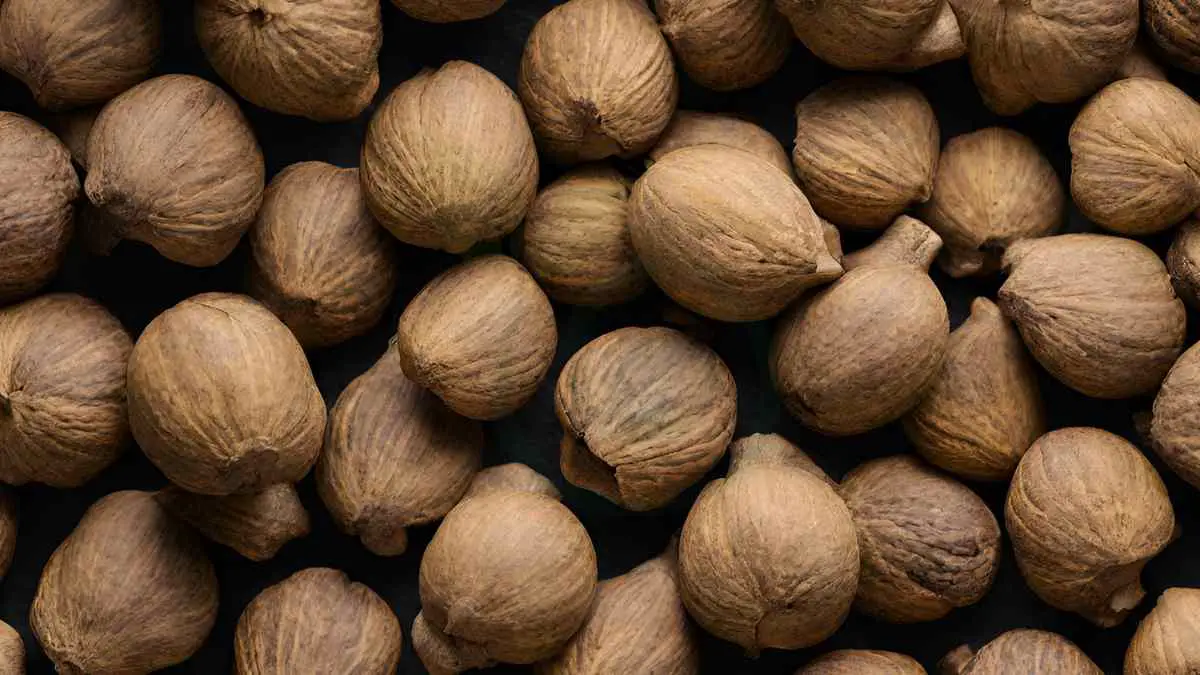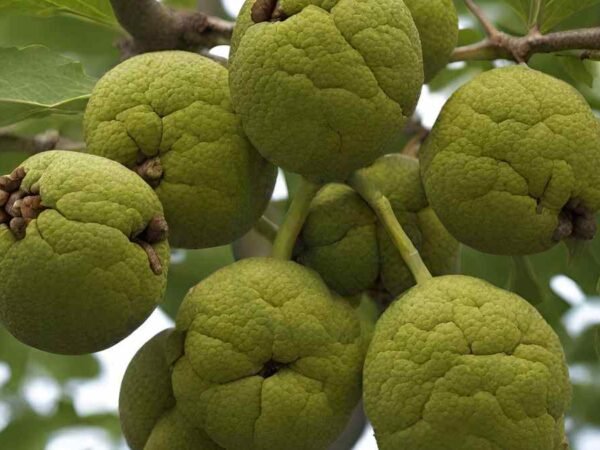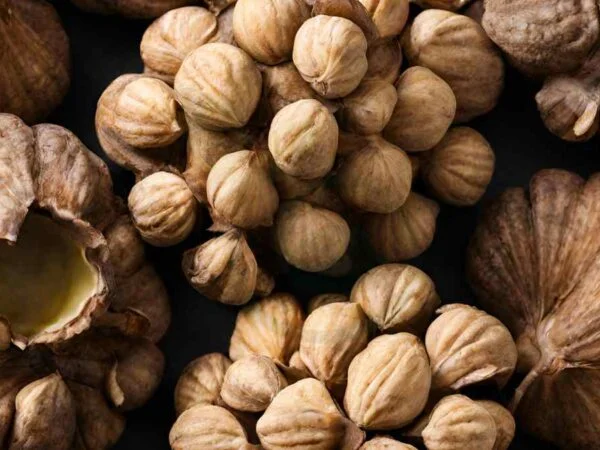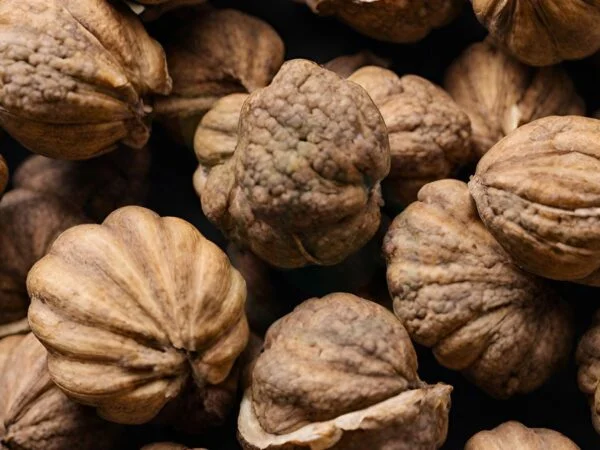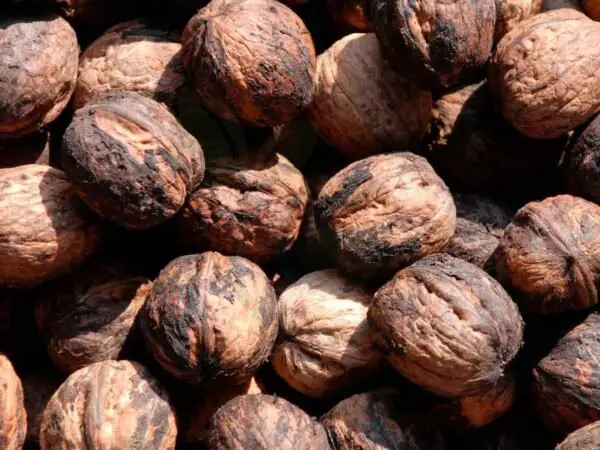Looking to explore the versatile uses of black walnuts? Look no further! From culinary delights to natural remedies, black walnuts offer a plethora of possibilities.
Black walnuts, known for their robust flavor, are a staple ingredient in various recipes, adding a unique and nutty taste to dishes. Additionally, they boast numerous health benefits, being rich in antioxidants, omega-3 fatty acids, and vitamins. Whether incorporated into baked goods, salads, or enjoyed as a standalone snack, black walnuts offer a delightful culinary experience.
Ready to embark on a journey of culinary discovery? Dive into the world of black walnuts and unlock a realm of flavors and health benefits waiting to be explored!
Key Takeaways
- Harvest black walnuts by collecting them when they fall from the tree, wearing gloves to avoid staining your hands.
- Process black walnuts by removing the husks, washing the nuts, and drying them before cracking.
- Store black walnuts in a cool, dry place or freeze them to maintain freshness.
- Get creative in the kitchen by incorporating black walnuts into various recipes like salads, baked goods, and pesto.
- Explore non-culinary crafts using black walnuts, such as dyeing fabrics or making natural ornaments.
- Consider tapping black walnut trees for syrup production, a unique and flavorful alternative to traditional maple syrup.
Harvesting Black Walnuts
Effective Techniques
Proper tools for harvesting black walnuts include a nut gatherer or gloves and a bucket. Store nuts in suitable conditions by keeping them dry and well-ventilated. Follow correct processing steps by hulling the walnuts and drying them properly.
Identifying Ripeness
Look for brown husks as a sign of readiness, indicating that the nuts are mature. Check for cracked husks, which is another indicator of ripeness. Ensure the husks peel off easily to confirm that the nuts are ready for harvesting.
Using Green Nuts
Wet green walnuts before peeling to make the process easier. Allow green walnuts to sit for a day or two after picking to enhance flavor development. Process green walnuts differently than mature ones by pickling or preserving them in syrup.
Processing Black Walnuts
Cracking Efficiently
Crack nuts with a nutcracker to easily access the delicious kernels inside. Use a hammer for tougher nuts that resist the nutcracker's efforts. Avoid crushing the nut while cracking to maintain the integrity of the kernel.
Fresh Nuts Toasting
Roast fresh nuts in the oven or a skillet to bring out their rich, earthy flavors. Incorporate toasted black walnuts into salads, baked goods, or as a crunchy topping for ice cream. Experiment with different roasting times to find your preferred level of toastiness.
Identifying Rancid Nuts
Smell the nuts before consuming them; any rancid odor indicates spoilage. Check for mold growth or discoloration on the shell or kernel. Discard any nuts showing signs of spoilage to prevent unpleasant taste or potential health risks.
Storing Black Walnuts
Optimal Conditions
To maintain the freshness of black walnuts, store nuts in a cool and dark place. This helps preserve their flavor and quality. Ensure proper ventilation during curing to prevent mold growth and ensure even drying. Keep nuts away from moisture as it can lead to spoilage.
Long-term Storage
After curing, you can store black walnuts for up to a year. To extend their shelf life, maintain a dry and cool storage area away from direct sunlight. Proper storage is crucial to prevent rancidity, which can affect the taste of the nuts over time.
Culinary Creations
Cooking Basics
When it comes to cooking with black walnuts, they can be a versatile addition to various recipes. From salads to main dishes, these nuts offer a unique flavor profile that enhances the overall taste. Experimenting with different cooking methods such as roasting, toasting, or incorporating them into sauces can bring out their rich nuttiness.
Incorporating black walnuts into your culinary creations can elevate the flavors of your dishes. Whether you're making a savory dish like walnut-crusted chicken or a sweet treat like walnut brownies, these nuts add a delightful crunch and depth of flavor. Their distinct taste can transform ordinary recipes into gourmet delights that impress your guests.
Baking Favorites
Snowball Cookies
- Add black walnuts to snowball cookie recipes for a nutty twist.
- Enjoy the delightful crunch and earthy flavor they bring to each bite.
- Experiment with textures by chopping the walnuts finely or leaving them in larger pieces for added crunchiness.
Walnut Pesto
- Elevate your pasta dishes with a flavorful walnut pesto sauce.
- Black walnuts lend a rich and earthy taste to the traditional pesto recipe.
- Besides pasta, this walnut pesto can also serve as a delicious dip for bread or vegetables.
Non-Culinary Crafts
Walnut Dye Making
Utilize black walnut husks for natural dye, extracting a rich brown hue. Follow simple steps to create homemade dye, boiling husks and straining the liquid. Experiment with different concentrations for varied shades, from light tan to deep chocolate.
Natural Ink Crafting
Make ink using black walnut hulls, blending them with water and vinegar. Experiment with different concentrations for varied tones, adjusting the ratio to achieve desired darkness. Use the ink for artistic projects like calligraphy or drawing intricate designs.
Tincture Preparation
Prepare tinctures using black walnuts by soaking crushed hulls in alcohol. Extract beneficial compounds like juglone for health benefits such as anti-inflammatory properties. Follow specific steps for making walnut tinctures, ensuring proper extraction of medicinal components.
Tapping for Syrup
Tree Selection
When harvesting black walnuts for syrup, choose healthy trees to ensure quality. Consider the tree's age and condition before tapping. Ensure sustainable harvesting practices to maintain tree health.
Syrup Extraction
Extracting syrup from black walnuts involves a process to obtain the sweet liquid. Enjoy the distinctive sweet and nutty flavor of the walnut syrup. Utilize walnut syrup as a natural alternative sweetener in various recipes.
Utilizing Nut Shells
Creative Uses
Black walnut shells are versatile and can be repurposed in various creative ways. One innovative use is utilizing the husks to create natural dyes for fabrics or Easter eggs. By boiling the husks, a rich brown dye can be produced, adding a unique touch to your crafts. Another creative idea is using crushed shells as mulch in your garden to deter pests like slugs and snails naturally.
On the culinary front, experiment with incorporating finely ground black walnut shells into homemade exfoliating scrubs or toothpaste for a natural abrasive texture. The hammered shells can also be used as eco-friendly packing material instead of plastic peanuts, showcasing sustainability in packaging solutions.
Environmental Benefits
Black walnut trees play a crucial role in supporting biodiversity and ecosystem health. These trees provide food and shelter for various wildlife species, contributing to the overall balance of local ecosystems. The shells themselves decompose slowly, enriching the soil with nutrients over time and promoting healthy plant growth.
In terms of cultivation practices, highlighting sustainable methods for harvesting black walnuts is essential. Encouraging responsible collection techniques helps maintain the delicate ecological balance while ensuring a continued supply of this valuable resource. By emphasizing sustainable practices, we can protect both the environment and the longevity of black walnut populations.
Health Benefits
Nutritional Content
Black walnuts are packed with essential nutrients that benefit people in various ways. These nuts contain high levels of omega-3 fatty acids, crucial for heart health. They provide a good source of protein and fiber, aiding in digestion.
Moreover, black walnuts are rich in vitamins such as vitamin E, which acts as an antioxidant, protecting cells from damage. They also contain minerals like magnesium and phosphorus, important for bone health and energy production. Consuming black walnuts can boost overall well-being.
Black Walnut Tea
Brewing black walnut tea offers a delightful and soothing beverage option. The tea boasts a distinct earthy flavor profile with hints of nuttiness. Enjoyed hot or cold, black walnut tea provides a calming experience while offering potential health benefits.
Furthermore, black walnut tea is believed to have anti-inflammatory properties that may help reduce inflammation in the body. It is also considered beneficial for gut health due to its antioxidant content. Exploring the world of black walnut tea can introduce you to a new realm of wellness.
Recipes Highlight
Desserts and Snacks
Incorporate black walnuts into desserts and snacks to add a unique twist. These nuts bring a crunchy texture and nutty flavor to your favorite sweet treats. Try them in cookies, brownies, or even sprinkle them over ice cream for an extra crunch.
Experiment with black walnuts in various dessert recipes like cakes, pies, and muffins. Their rich flavor pairs well with chocolate, caramel, and fruits like apples and pears. The versatility of black walnuts allows you to get creative in the kitchen and impress your guests with delightful desserts.
Savory Dishes
Enhance the flavors of savory dishes by adding the distinct taste of black walnuts. Incorporate these nuts into main courses such as salads, pasta dishes, or roasted vegetables. The earthy notes of black walnuts complement savory ingredients like herbs, cheeses, and meats beautifully.
Experiment with different ways to elevate the taste of your savory dishes using black walnuts. Consider adding them to stuffing for poultry or sprinkling them over risottos for a flavorful crunch. By exploring the use of black walnuts in savory recipes, you can create unique and delicious meals that will leave everyone wanting more.
Closing Thoughts
Incorporating black walnuts into your life can offer a plethora of benefits, from culinary delights to creative projects and health advantages. Harvesting, processing, and utilizing these nuts can open up a world of possibilities in your kitchen and beyond. Whether you're exploring new recipes or crafting unique items, black walnuts can add a distinctive touch to your creations. The health benefits they provide make them a valuable addition to your diet.
Take the next step and dive into the world of black walnuts. Experiment with different recipes, try out new crafts, and explore the various ways you can incorporate these versatile nuts into your daily routine. Embrace the richness and uniqueness that black walnuts bring to the table, and enjoy the journey of discovering their many uses.
Frequently Asked Questions
What are the best methods for harvesting black walnuts?
To harvest black walnuts, follow these steps:
- Wait until the outer husk turns yellow or brown.
- Collect walnuts from the ground.
- Remove husks by wearing gloves and using a hard surface.
- Dry the nuts for a few weeks before processing.
How can I effectively process black walnuts?
Processing black walnuts involves:
- Crack open the hard shell using a hammer or nutcracker.
- Pick out the nutmeat carefully.
- Rinse the nutmeat to remove any debris.
- Dry or roast the nutmeat before consuming or using in recipes.
What is the recommended way to store black walnuts?
To store black walnuts properly:
- Keep them in a cool, dry place away from sunlight.
- Store shelled nuts in an airtight container in the refrigerator or freezer.
- Unshelled nuts can be stored in a breathable bag or container.
What culinary creations can I make with black walnuts?
You can use black walnuts in various culinary creations like:
- Baking recipes such as cakes, cookies, and bread.
- Salads for added crunch and flavor.
- Homemade pesto or sauces for a unique twist.
Are there health benefits associated with consuming black walnuts?
Black walnuts offer health benefits such as:
- Rich source of antioxidants and omega-3 fatty acids.
- Potential anti-inflammatory properties.
- High levels of protein, fiber, and essential minerals.
Image Source: Paid image from CANVA

